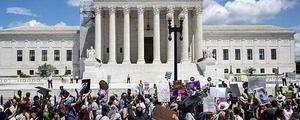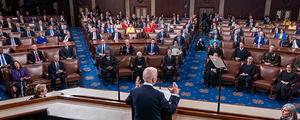Race Relations
Explore Gallup's research.

Nearly two-thirds of Americans say racism against Black people is widespread, even as slightly more than that say they've seen civil rights gains.

Less than half of Americans are satisfied with the way immigrants and Black, Hispanic, Jewish and Arab people are treated in the U.S.

Majorities of Americans are highly concerned about financial issues, including the economy, healthcare costs, inflation and the federal budget deficit.

As President Donald Trump launches initiatives to reshape the nation in his second term, a recent Gallup poll provides a road map for the issues Americans think need the most attention.

Most Black parents with young children report engaging in activities that bring their family together, such as music and dance and sharing meals and traditions.

Gallup tested different ways to ask race and ethnicity to better understand how changes to the U.S. standards for collecting race and ethnicity on federal surveys might affect data and analysis.

A University of North Carolina-Gallup Study finds that 25% of Black Parents find transportation to be a "big problem" for their childcare arrangements.

Black families with young children are more likely to report discussing the challenges than the advantages they may face because of their race.

Among Black families with young children, parents with strong social connections are more likely to remain optimistic despite discrimination.

Residents of the Greater Washington, D.C., region give affordable housing the worst ratings when asked about a list of local resources. A majority are now concerned about being able to pay rent or mortgage costs, up from 2020.

Black Americans' perspectives on the Supreme Court's 2023 ruling to end the use of race and ethnicity in university admission decisions are quite nuanced -- and largely fracture along generational lines.

77% of Americans who have interacted with police in the past 12 months say the experience was positive overall, but those who do not report positive experiences in police encounters have lower wellbeing and feel less safe.

Attitudes toward local policing among Black adults differ by gender, with Black women having less-positive perceptions than Black men.

Black Americans continue to report less favorable attitudes than White adults toward policing, and interest in major police reform has also been steadily higher among Black adults.

Joe Biden's job approval rating is a fairly steady 42%. Ratings of his handling of the Ukraine situation and race relations are slightly higher than his overall rating.

Recent Supreme Court decisions may have conflicting impacts on Americans' overall opinion of the court.

Americans broadly support race-related history and current events in U.S. schools amid discussions on racism in K-12 curricula.

Americans' views of national conditions remain sour, with 18% satisfied with the way things are going and the Economic Confidence Index holding at -43.

About one in five Black postsecondary students say they "frequently" or "occasionally" feel discriminated against at their institutions. Reports of discrimination are higher among those in short-term credential programs.

Whether reflecting the remnants of the pandemic or the difficulty of inflation, Americans remain sour about the state of the union.